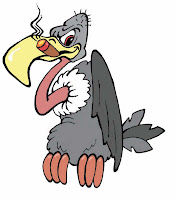
The following column is reprinted from the April issue of Providence Monthly
EYES WIDE OPEN/APRILBy Scott Duhamel
I’ve been under the mystical spell of the infamous “Auteur Theory” since I first read (and reread) Andrew Sarris’
The American Cinema back in my salad days. Sarris spelled out the obvious in a nutshell-that the film director is essentially the author of a film, despite the fact that filmmaking itself is indeed a thoroughly collaborative process (writing, acting, camera work, set design,et al), and the foremost of these film authors create work that is continually linked by personal themes, preoccupations, motifs, and other commonalities. Among the pleasures derived from this well accepted theory (particularly for the legions of film nitcrits who write about movies for the public) is that even the lesser works emanating from these legit auteurs are a head above the fodder produced by the majority of mere traffic cops and artless technicians who helm much of Hollywood’s product .
Case in point: Michael Gondry, a truly gifted filmmaker whose latest,
Be Kind Rewind, while not a wholly successful creation, stands as discernibly watchable effort, as unevenly stitched together as it may be, its very stitchings are bewitching, all of them propelled by a captivatingly singular vision. Is it a superlative film, a knockout punch? No, but as the theory dictates, any Gondry is well worth seeing.
Gondry made his bones as a rock vid director turning heads and blowing minds as the dreamy mad scientist responsible for the parade of kooky, funky, and wholly preternatural images parading behind the music of people like The White Stripes, Daft Punk, or Bjork. His bag of tricks, which include primitive special effects, a heady predilection for the whimsical (he and Wes Anderson outta go mano-a-mano in a whimsy contest), a humorous appetite for the surreal, and a noticeably light and gentle directorial touch, were fully intact by the time he made his big screen debut with
Human Nature in 2001. That breezily satirical glance at science, civilization and the so-called uncivilized was percolating with funny bits and cheeky laughs, it just didn’t quite coalesce. His second collaboration with the noted screenwriter Charlie Kaufman in 2004,
Eternal Sunshine of the Spotless Mind, resulted in his finest film yet, a deft and ingratiating amusement park ride of a movie, wondrously executed and fanciful enough to tickle both the eye and the soul.
The Science of Sleep, released in 2006, was almost as good, a ticky-tacky kaleidoscope fantasy of sad love and failed romance was as much imaginative collage as it was movie head trip, although it suffers from a slight over reliance on the director’s now patented sense of whimsy.
Be Kind Rewind is more of the same, a filmic conceit built of charm, stylistics, and loopy visuals, all of it amusing to behold, but not quite ever achieving any significant staying power. The tale, set in the most unlikely of fantastical places-Passiac, New Jersey—defies logic from the start. After one of those weird science accidents lovable loser Jerry (Jack Black) manages to erase all of the shelved movies in the neighborhood video store owned by the venerable Mr. Fletcher (Danny Glover), and run by Jerry’s best bud Mike (Mos Def). With help from homegirl lma (Melonie Diaz), and mucho encouragement from the store’s steadiest customer Miss Falewicz (Mia Farrow), the unskilled duo begins to videotape short homemade versions of such popular fare as
Driving Miss Daisy, Ghostbusters,
RoboCop,and
Rush Hour, and the scheme somehow results in bonding the neighborhood’s denizens through the power of primitive art.
Gondry’s cinematic arsenal is purely fabulist, and his low-tech trickery remains just this side of crayons, Elmer’s Glue, and flip books. His previous works all seemed to emphasize a contemporary sense of distancing and unfired connections, while
Be Kind Rewind skewers toward a highly sentimental push for closure and communal bonding. His typical infusion of childlike innocence still dominates the proceedings, but many of the gags land at a comic level slightly below the Buster Keatonish heights they aim at. The movie’s finale, a paean to sweeter times and a more guileless Hollywood, attempts to will the audience into a state of heightened pathos, yet even a true believer such as myself might have a problem jumping in that deep. Still, Gondry’s powers for the illusory, and his commitment to a tone that remains haplessly enchanting and deliberately delusional truly does make even his flawed handiwork appealing. The quixotic nature of his filmmaking ethos lends itself to loose ends, to a certain razzle-dazzle hat comes without the eruptive fireworks. In today’s bleak landscape of formula, cheesiness, and overt commercial twaddle a penchant for both charm and imagination goes a long, long way.










